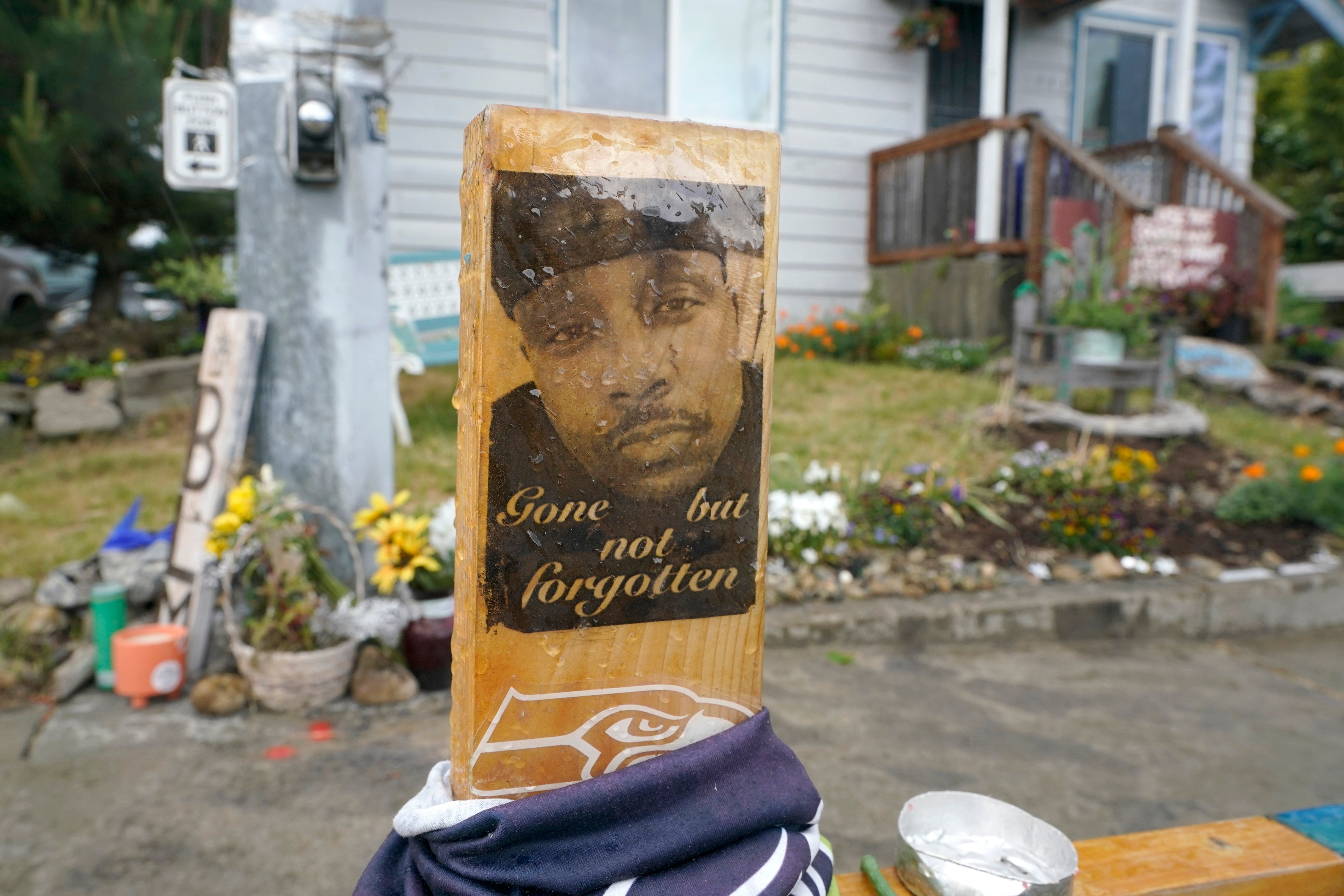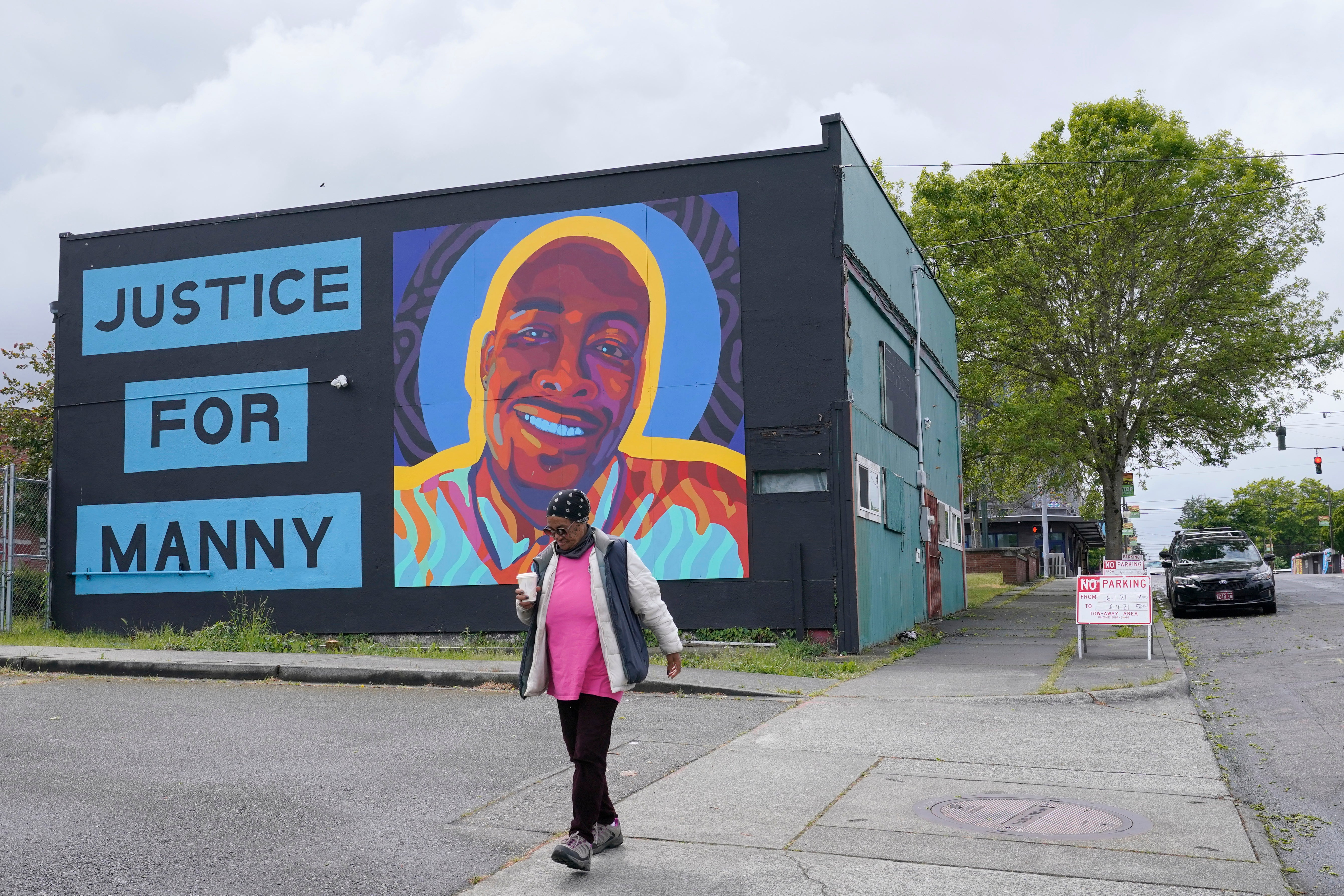Black man outrageously blamed for his own death at police officers’ murder trial
‘This is a situation where he created his own death,’ defence attorney Wayne Fricke tells court
Defence attorneys representing three Washington police officers on trial for the murder of a Black man have accused the victim of “creating his own death.”
Tacoma officers Matthew Collins, 40 and Christopher Burbank, 38 are facing second-degree murder and manslaughter charges in connection with the 3 March 2020 death of Manuel Ellis. A third officer, 34-year-old Timothy Rankine, is charged with manslaughter in the case.
Throughout the nine weeks of trial, jurors have heard from prosecutors that the officers knocked Ellis to the ground, punched and choked him and shot him with a taser as he walked home from a 7-Eleven. Before he was killed, Ellis whispered to the officers: “Can’t breathe, sir.”
Closing arguments started on Monday, with the state arguing that Ellis would be alive today if the officers had done what most people would do if someone was struggling to breathe. Special prosecutor Patty Eakes said on Tuesday that the officers had “chosen to treat [Ellis] like an animal, in the most dehumanizing position you can imagine.”
The defendants’ attorneys have since made controversial characterisations of the circumstances surrounding Ellis’ death, directly blaming him for being “paranoid” and ultimately “[causing] his own death.”
“This is a situation where he created his own death,” defence attorney Wayne Fricke claimed during closing arguments on Wednesday, per CBS News. “It was his behaviour that forced the officers to use force against him because he created a situation that required them to act.”

Ellis’ cause and manner of death were ruled a homicide caused by lack of oxygen due to physical restraint. Ellis was on his stomach, with both his legs and arms tied and his body pressed against the concrete while the officers rested their weight on him, The News Tribune reports.
However, the defence has focused on methamphetamine levels present in Ellis’ body at the time of his death and an enlarged heart noted in the autopsy report.
The defence has said that Ellis was the aggressor and that he attacked the officers with “super-human strength” and eventually died of a drug overdose and a damaged heart. Witness testimony and video presented at the trial suggest otherwise.
Three witnesses said they saw the officers sitting in their patrol car as Ellis approached and walked to the passenger side. When Ellis turned to leave, Burbank threw open the door and knocked Ellis to the ground, according to the witnesses.
Prosecutors also played video recorded by the witnesses for the jury.

Mr Burbank and Mr Collins gave their official statements before they knew there was audio and video of the encounter, Ms Eakes said. They claimed Ellis attacked them violently and relentlessly and didn’t say a coherent word.
“But you know that’s not true,” Ms Eakes told the jury. “He did speak after he was pinned to the ground. He said he couldn’t breathe, sir, politely and nicely.”
When Mr Rankine showed up and pinned Ellis to the ground, even though he was in handcuffs, Ellis said he couldn’t breathe three more times.
Mr Rankine responded by saying, “If you’re talking to me you can breathe just fine.” After that, they put hobbles on Ellis’ ankles and connected them to his handcuffs.
The second-degree murder charges filed against Mr Burbank and Mr Collins, also called “felony murder,” mean a felony was being committed and someone died. In this case, the prosecution argues the officers committed the felony of unlawful imprisonment or assault.
Ms Eakes told the jury that they don’t need to unanimously agree on which felony was committed to find the two officers guilty, only that Ellis died during the commission of a felony. They also have the option of manslaughter, which is the charge Mr Rankine faces.
Closing arguments continued on Wednesday. The prosecution is now expected to present a rebuttal.
The Associated Press contributed to this report

